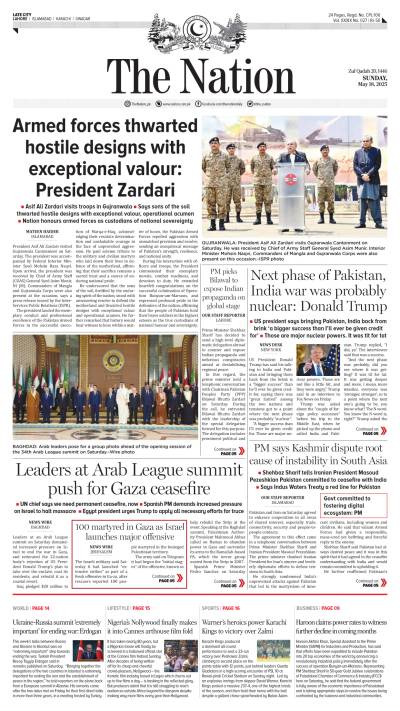The most fundamental duty of any government is the protection of the life and property of its citizens; this obligation has been enshrined in Article 9 of the Constitution of Pakistan. In an increasingly interconnected and interdependent world the task of maintaining public peace and safety has become ever more challenging. The manifestation of trends such as urbanisation and globalisation, coupled with the rise of terrorism, has redefined the paradigm of public safety and highlighted the need to reform the security infrastructure. Furthermore law enforcement in Pakistan is also hindered by outdated methodologies as well as the largely negative perception of the police. A fresh approach is the need of the hour.
It is with this vision in mind that the Punjab Safe Cities Authority (PSCA) has been set up, in order to modernise and streamline the working of the Punjab Police. The concept of “Safe Cities” has gained traction in many countries in recent years as a holistic and integrated approach to public safety. It involves the use of technology, infrastructure, personnel and processes to enhance security and information flow, and thereby provide citizens a safe and comfortable environment.
Accurate and up-to-date information is one of the critical aspects of law enforcement. Thus it is no surprise that one of the main components of the Safe Cities programme is to establish an advanced monitoring system employing video surveillance cameras. This shall be coordinated by a centralised command and control center which contains a strategic operations monitoring suite as well an emergency hotline. These centers also act as information warehouses where data may be collected, stored and analysed in order to assist decision-making and formulate policy. In the information age the public sector must harness the power of big data in order to meet the challenges of governance head on.
Given that the state finds itself locked in an existential battle against terrorism, effective monitoring and policing are the need of the hour. The PSCA aims to develop a networked police system in Punjab and currently is in the process of setting up PPIC3 (Punjab Police Integrated Command, Control and Communication) centers in major cities, starting with Lahore. In the second phase of the programme, which has also been set into motion, PPIC3 centers shall be set up in Rawalpindi, Faisalabad, Multan and Gujranwala. These shall be modelled on modern urban monitoring systems as those used in cities like London, New York, Dubai and Singapore. It is planned that the Lahore PPIC3 Center will be made functional by October 2016 and shall be used to monitor the Muharram processions to begin with.
With the increase in the number of vehicles and commuters on the road, traffic management has emerged as an integral constituent of public safety. Keeping this in mind the PPIC3 Lahore project shall also establish an intelligent Traffic Management System, incorporating digital traffic signals, as well as monitoring and messaging systems in line with the most advanced smart urban traffic management technologies. The system will ensure that traffic is routed in the most “free-flowing” manner possible, diverted to the shortest route in case of blockages, road works, etc. This would not only increase the safety of motorists and pedestrians, but also save time and lead to more stress-free journeys.
Moreover e-ticketing will be introduced with violations being recorded on video for evidence purposes. The vehicle number plates shall be automatically read and fines would be dispatched to the mailing address of the owner electronically. This would ensure uniform and effective traffic law enforcement. It will also provide data for further analysis on traffic flows and patterns. This would allow the police to track the number of violations committed by different categories of motorists and take targeted remedial actions. For example if it is discovered that motorcyclists are particularly culpable when it comes to breaking signals, additional training may be provided to them and increased scrutiny carried out while granting driving licenses.
At a time when the state is facing a multiplicity of security threats there is an urgent need to incorporate modern technology and operating procedures to help revamp our police force. The Punjab Safe Cities programme aims to reinvigorate the Punjab Police and equip it to face the challenges of the modern era. Not only shall the project enhance their ability to respond quickly to emergency situations, it shall also optimise resource utilisation. Furthermore it will help improve co-ordination between various agencies and assist in policy formulation. The Safe City concept embodies the idea of smart policing as practiced in the major cities of the world and the PSCA aims to establish the same standards in Punjab.






